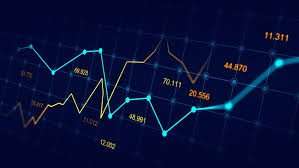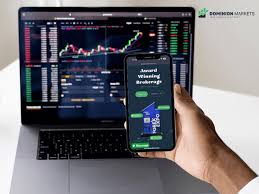Essential Guide to Forex Trading Classes

Essential Guide to Forex Trading Classes
In the world of financial markets, Forex trading has emerged as a thrilling avenue for earnings, characterized by its liquidity, volatility, and potential for considerable returns. However, with great potential comes great risk, prompting many aspiring traders to seek knowledge through forex trading classes https://islamic-fxtrading.com/. These classes play a pivotal role in shaping competent and confident traders. In this comprehensive guide, we will delve into the importance of Forex trading classes, what to expect from them, and how they can significantly enhance your trading capabilities.
Why Consider Forex Trading Classes?
The foreign exchange market is complex and operates 24 hours a day. For newcomers, the sheer volume of information and the speed of trading can be overwhelming. Forex trading classes provide foundational knowledge that is essential for navigating this fast-paced environment. Here are some reasons why you should consider enrolling in these classes:
- Structured Learning: Forex trading classes offer a structured learning path, allowing traders to build knowledge gradually, understand fundamental and technical analysis, and grasp risk management techniques.
- Expert Guidance: Instructors who are experienced traders offer invaluable insights, share personal strategies, and provide real-world examples that can help demystify complex concepts.
- Networking Opportunities: Classes foster a community of traders. Learning alongside peers allows you to share experiences, strategies, and support, which can be incredibly motivating.
- Improved Confidence: Gaining a solid understanding of market dynamics through education helps build the confidence needed to make informed trading decisions.
- Risk Management Skills: A critical aspect of trading is managing risk. Classes teach you how to manage your capital wisely and devise strategies to mitigate losses, essential skills for longevity in trading.
What to Expect from Forex Trading Classes
Forex trading classes can vary in length, style, and depth, but most will cover several core topics:
1. Market Fundamentals
Understanding what Forex is, how the market operates, and the factors influencing currency movements is crucial. A solid foundation in market fundamentals sets the stage for further learning.
2. Technical Analysis
This involves analyzing price charts, recognizing patterns, and utilizing various indicators to forecast future price movements. Technical analysis is an essential skill that traders use to make informed decisions.

3. Fundamental Analysis
Fundamental analysis examines economic indicators, news events, and geopolitical developments to assess their impact on currency values. Courses often teach how to interpret economic reports and their implications for trading.
4. Trading Strategies
Successful traders develop strategies based on their analysis. Classes introduce various styles of trading (day trading, swing trading, scalping) and help traders determine what aligns best with their goals and risk tolerance.
5. Risk Management Techniques
Understanding leverage, setting stop-loss orders, and calculating position sizes are all critical components of risk management. Proper education in these areas can significantly affect your trading success.
6. Trading Psychology
The psychological aspect of trading is often overlooked, yet it can be the difference between success and failure. Courses frequently cover how to handle emotions, maintain discipline, and build a trader’s mindset.
How to Choose the Right Forex Trading Class
With numerous Forex trading classes available, choosing the right one can be daunting. Here are some factors to consider:
- Instructor Qualifications: Research the credentials and trading experience of the instructor. A knowledgeable instructor can greatly affect the quality of the learning experience.
- Course Content: Review the syllabus to ensure it covers the topics you wish to learn. A comprehensive course should address both theoretical and practical aspects of Forex trading.
- Reviews and Testimonials: Look for reviews or testimonials from past students. Feedback can provide insight into the course’s quality and effectiveness.
- Flexibility and Format: Consider the format (online vs. in-person) and the schedule that best fits your lifestyle. Some classes may offer flexibility in terms of timing and pacing.
- Cost: While quality education can require investment, weigh the cost against the value you expect to gain. Inquire about any additional fees for materials or ongoing support.
Conclusion
Forex trading classes are an invaluable resource for anyone looking to enhance their trading skills, understand market dynamics, and approach the Forex market with confidence. By engaging in structured learning, you set yourself on a path to becoming a more proficient trader, equipped to make informed decisions in a rapidly changing environment. Whether you are a complete novice or a seasoned trader seeking to refine your skills, investing time and effort into education can pay significant dividends in the long run. As you embark on your trading journey, remember that continuous learning and practice are key components to achieving success.
